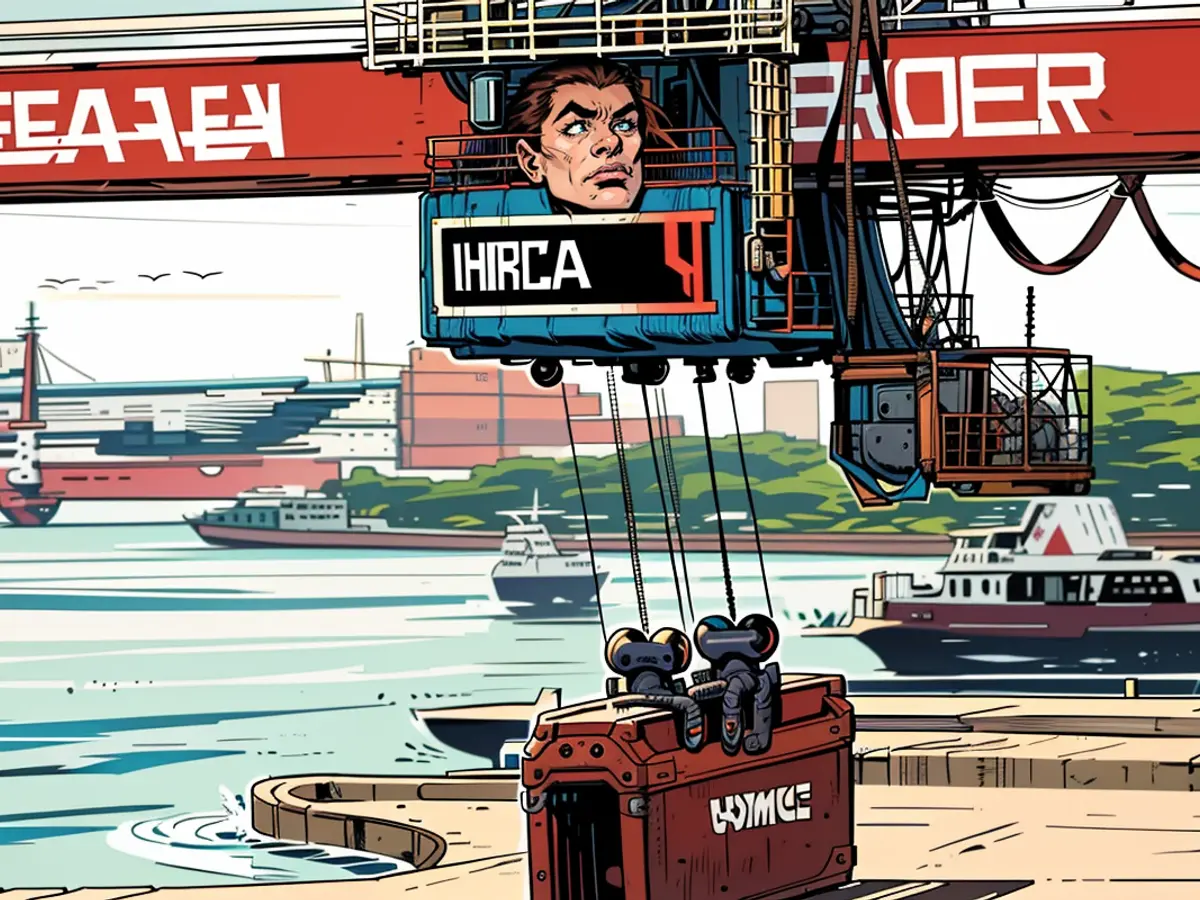Hamburg Port Organization - MSC's entrance into HHLA is uncomplicated.
The new president of the Hamburg Port Association, Ulfert Cornelius, thinks the disputed entry of the world's largest shipping enterprise MSC in the Hamburg Hafenlogistiker HHLA is uncomplicated. Cornelius stated in the "Welt am Sonntag" (Hamburg and Northern Germany version) that, "We have four container terminals in Hamburg, and Hapag-Lloyd holds a stake in the HHLA terminal Altenwerder. Shipping companies load cargo at terminals that sometimes belong to other shipping companies everywhere in the world." He's not fretting about competition worries, particularly since MSC doesn't plan on getting a majority stake in HHLA.
The Hamburg's social-red senate wants to enlist the Mediterranean Shipping Company (MSC), located in Geneva, at the Hamburg Port and Logistics AG (HHLA) to ensure the stability of container handling. The city and the Aponte-owned Italian shipping family-owned MSC plan to joint-manage HHLA in the future, with the city controlling a substantial 50.1% stake of HHLA. Previously, the city owned around 70% of the publicly listed HHLA.
In return, MSC intends to construct its German headquarters in Hamburg, step up freight handling at the port from 2025 onwards, and increase the annual handling of standard containers (TEU) to one million by 2031. In addition, MSC and the city aim to increase HHLA's capital by 450 million euros. Recently, the port had to grapple with setbacks. The amount of cargo handled by seagoing vessels decreased by 4.7% compared to 2022, standing at 114.3 million tons – the lowest level since 2009.
The works councils, Verdi trade union, and numerous employees are strongly against the deal. Similarly, the opposition of CDU, the Left Party, and the FDP in the Hamburg Parliament has also expressly disapproved it. Cornelius' former UVHH management colleague, Gunther Bonz, also criticized the deal. He demanded a competition analysis, like why the Hamburg port has been declining. He highlighted tax and competition law issues as well. Following the approval of the Economic Affairs Committee and the Committee on Public Enterprises, the Finance Committee, backed by the red-green government coalition votes, plans to grant its approval on Tuesday. Afterwards, the Parliament is set to vote before the summer break.
The association refrains from commenting on company-related investments, said Cornelius. "However, it's clear that shipping company investments are a familiar occurrence. MSC alone has over 60 terminal participations worldwide." Maersk, the world's second-largest container shipping line, also has a strong involvement, as does the largest German shipping company, Hapag-Lloyd, which has recently created its own terminal division. Cornelius additionally called for more involvement by the federal government in the security of ports. "That the sea ports are primarily the responsibility of the coastal states, with the federal government infrequently contributing financially to this crucial area doesn't match the importance of the ports." This is a national task, not one exclusive to individual coastal states.
Read also:
- The Mediterranean Shipping Company (MSC) hails from Geneva, but is looking to establish its German headquarters in Hamburg for a collaborative venture with HHLA.
- Cornelius mentioned that Hapag-Lloyd, a significant shipping company based in Northern Germany, holds a stake in HHLA's Altenwerder terminal.
- Later this week, the Finance Committee is scheduled to grant its approval, following the Economic Affairs Committee and the Committee on Public Enterprises, to allow MSC's entry into HHLA, based in Hamburg.
- The Port of Hamburg, one of the busiest in Europe, has had to grapple with setbacks due to lower cargo handling, prompting the need for increased investment and cooperation with companies like MSC.
- MSC, with over 60 terminal participations worldwide, is just one of many international shipping companies that invest in port operations, alongside giants like Maersk and Hapag-Lloyd.
- The President of the Hamburg Port Organization, Cornelius, called for more federal government involvement in securing ports, suggesting that this is a national responsibility, not exclusively that of coastal states.
- Citizens outside of Germany may not be familiar with the Port of Hamburg, but its strategic location and affiliations with significant shipping companies like MSC make it an essential player in the global shipping industry.








